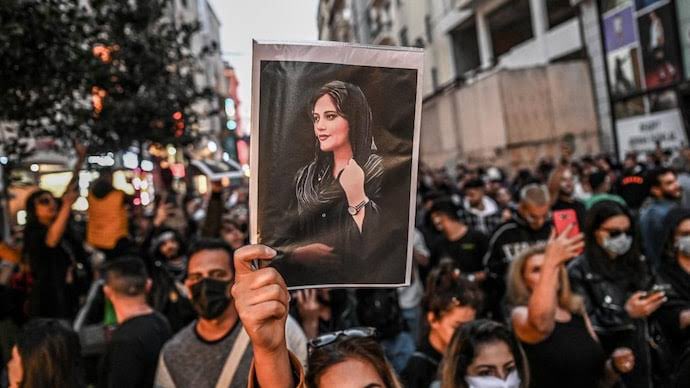
Iran executing 1 person every 6 hrs, says report; 2 get rare blasphemy death

Iran has been going on an alarming spree of executions, hanging two men on Monday (May 8) reportedly for blasphemy. Only two days ago, on Saturday, the country executed Swedish-Iranian national Habib Farajollah Chaab for allegedly killing people at a military parade in 2018.
The Oslo-based group Iran Human Rights (IHR) has come up with some disturbing figures. According to IHR, Iran has executed at least 203 people this year alone even though it has formally announced only two.
The IHR’s findings reportedly show that the Islamic Republic has been putting to death one person every six hours over the past 10 days. During this time, over 42 people, half of them belonging to the minority Baluch community, were hanged to death. The IHR report shows that most of the executed convicts were accused of drug offences.
Second-largest executioner
In 2022, following the unrest, Iran reportedly executed at least 582 people, a 75% rise from 333 people in 2021, according to IHR and France’s rights body Together Against the Death Penalty (ECPM). An Amnesty International report said Iran was the world’s second-largest executioner, behind only China, which is believed to put thousands to death every year.
Also read: Iran hangs former defence ministry official over ‘British spy’ charge
But even by Iran’s standards, executions for blasphemy are reportedly rare, as the authorities reduced the sentences in previous cases.
The two men executed on Monday, Yousef Mehrad and Sadrollah Fazeli Zare, were hanged to death at Arak Prison in central Iran. According to the US Commission on International Religious Freedom, they were arrested in May 2020 for being involved in a channel called “Critique of Superstition and Religion” on the Telegram messaging app. Both faced months of solitary confinement before being put to death on Monday.
News agency AP cited Mizan news agency of Iran’s judiciary as having confirmed the executions. It reportedly said the two men insulted Prophet Muhammad, promoted atheism, and burnt Islam’s holy book Quran.
Chaab’s hanging
On Saturday, Habib Chaab, founder of a separatist group calling for independence for ethnic Arabs in Iran’s Khuzestan province, was hanged too. The Iranian-Swedish national was abducted by Iranian agents in Turkey in 2020 and two year later, put on trial — which IHR termed as “farce” — for leading the movement and plotting and carrying out “numerous bombings and terrorist operations”.
Also read: Iran foundation offers Rushdie’s attacker 1,000 square metres land as reward
Most crucially, he was held responsible for the 2018 attack on a military parade in the city of Ahvaz where gunmen had opened fire at Revolutionary Guard troops. Both soldiers and civilians died.
Mahmood Amiry-Moghaddam, who leads IHR, urged the international community to speak up against Iran’s blood lust. “The Islamic Republic has executed one person every six hours in the last ten days while the international community has remained silent,” he reportedly said in a statement.
Creating fear, not fighting crime
“The international community must show with its reaction that executions for expressing an opinion is intolerable. The refusal of the international community to react decisively is a green light for the Iranian government and all their like-minded people around the world,” he reportedly added.
According to Moghaddam, the purpose of the executions is “to create societal fear, not to fight crime.” The IHR has also warned of more imminent executions at Qezel Hesar Prison in Karaj near Tehran.
Also read: Saudi Arabia, Iran bury the hatchet, courtesy China
The streak of executions in Iran started after the countrywide protests following the death of 22-year-old Mahsa Amini last September. Since then, the protests have cooled but the hangings have continued. Over 500 people were reportedly killed and 19,000 arrested during the protests, but it also marked one of the biggest challenges to Iran’s theocracy since the 1979 Islamic Revolution.
(With agency inputs)


